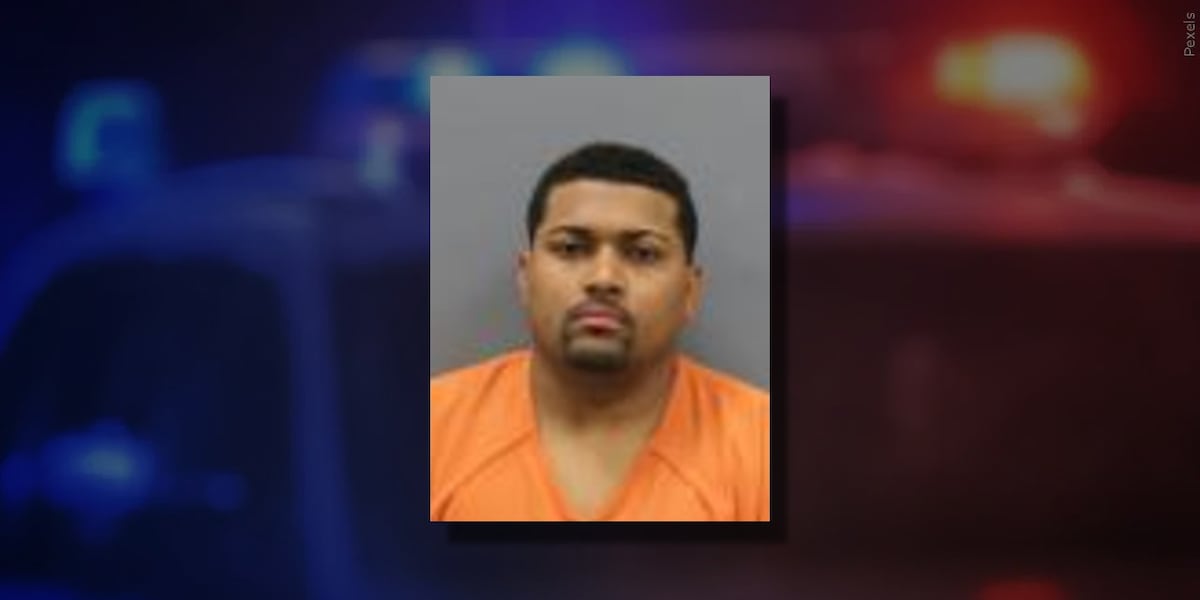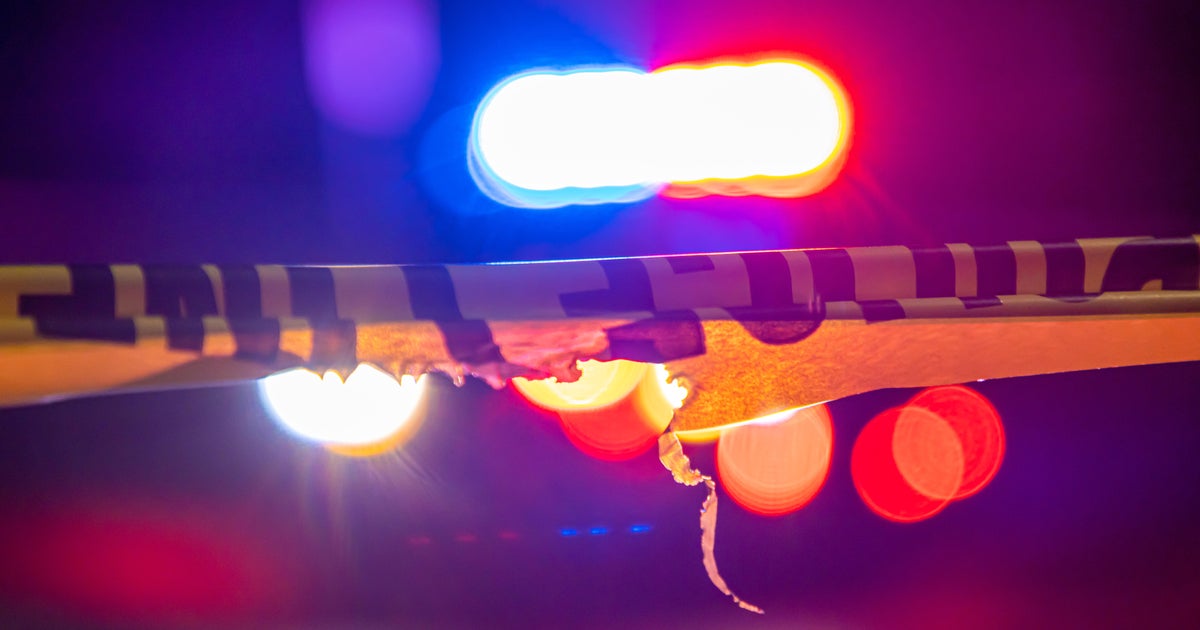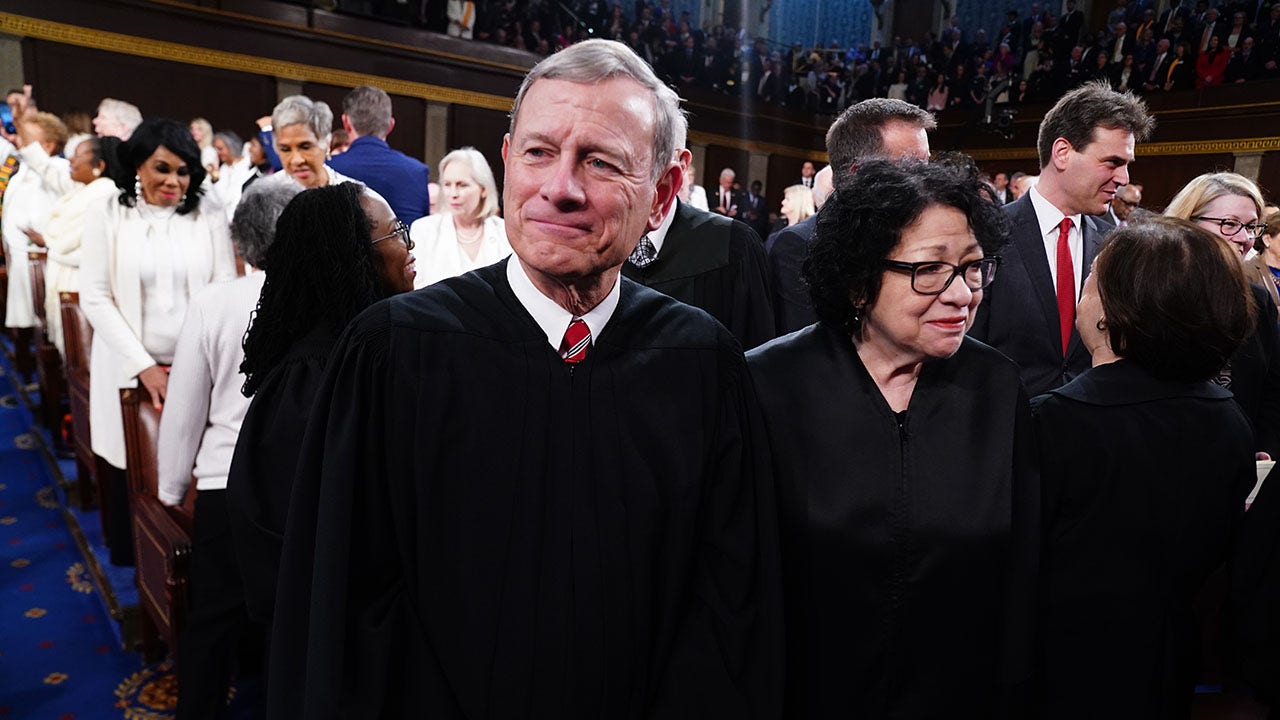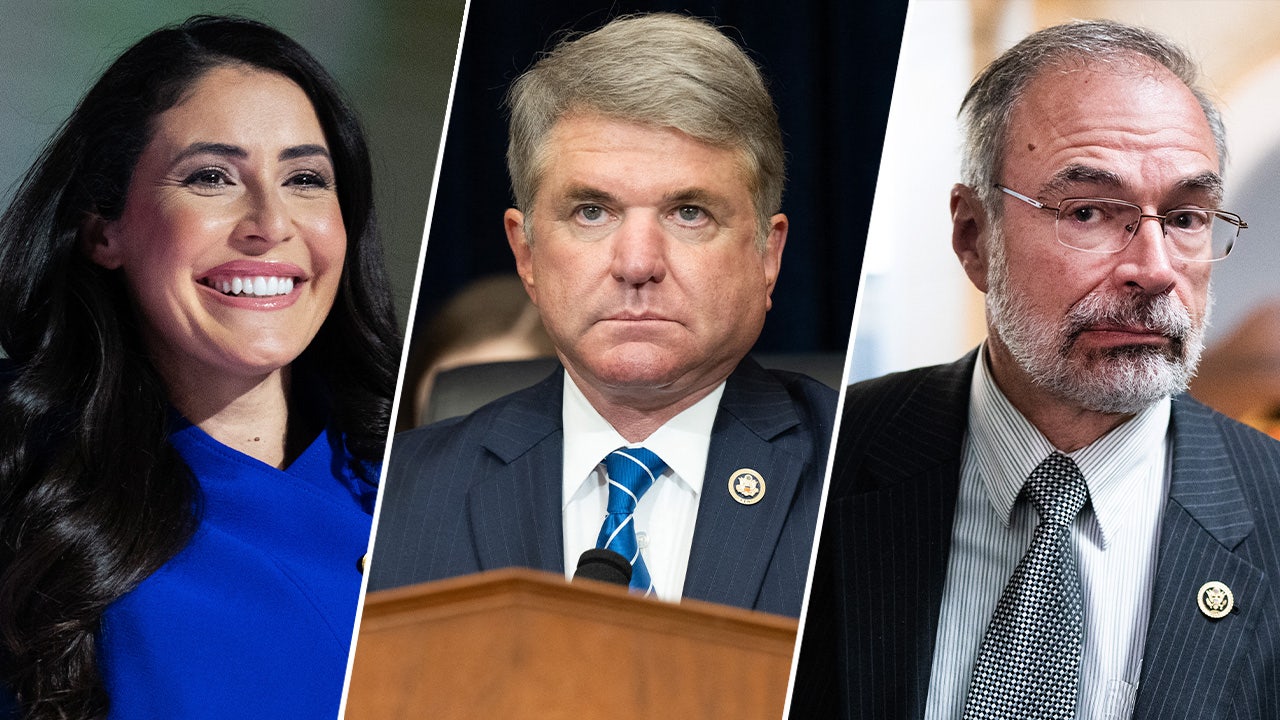Nebraska
Nebraska commission issues temporary relief of Gov. Pillen's return-to-work order
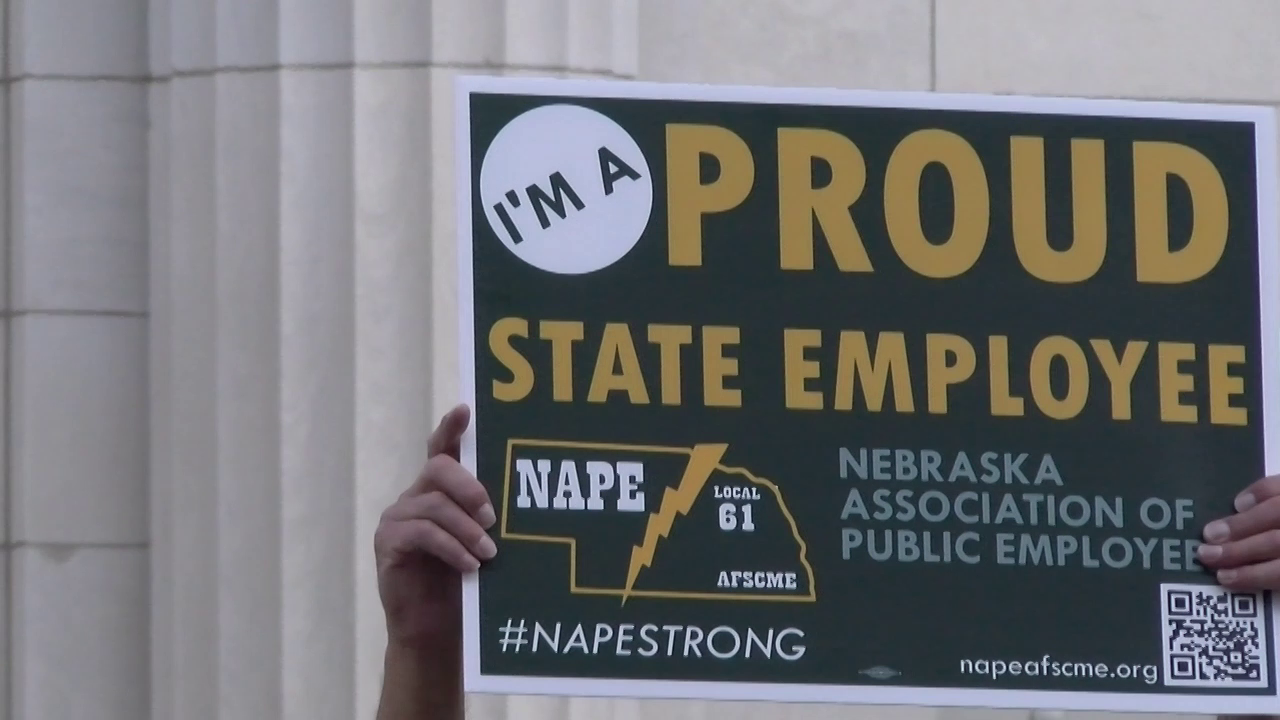
LINCOLN, Neb. (KLKN) – State workers can continue working remotely, for now.
Last month, Gov. Jim Pillen ordered an end to remote work for state employees. They were ordered to return to their offices by Jan. 2.
the Nebraska Association of Public Employees – which represents over 8,000 employees – took legal action after the state refused to bargain over the changes.
The union then filed a petition with the Nebraska Commission of Industrial Relations, alleging that the state violated the State Employees Collective Bargaining Act.
On Friday, the commission granted the union’s motion for temporary relief of the order while the trial is ongoing.
The case will proceed at a future date, but additional hearings are “unlikely” to take place before February 2024, according to the union.
“We are pleased that the CIR recognized the harm that would occur if the Executive Order was implemented on January 2,” said Justin Hubly, the union’s executive director, in a press release. “We believe the CIR’s action was appropriate under the law, and we are glad that the status quo will continue during the proceedings before the Commission.”
Earlier this month, a spokeswoman for Pillen sent a statement to Channel 8 regarding the return-to-work order.
“The directives outlined in Governor Pillen’s executive order remain unchanged,” the spokeswoman said. “Our state’s public servants are a valued workforce and Nebraska taxpayers are entitled to optimal service delivery. Working from home, even in a part-time capacity, does not lend itself to efficient and financially responsible operations from the state.”
Despite the ongoing trial, the union said nothing is prohibiting the parties from negotiating and settling the case.
“Litigation is inefficient, costly, and rarely produces a winner,” Hubly said in the release. “We hope the Governor will reconsider his position and meet with us to negotiate forward thinking contract language that benefits all Nebraskans, especially those who serve their communities each and every day. When we work together, everyone benefits.”

Nebraska
Nebraska politicians react to deadly attack in New Orleans

LINCOLN, Neb. (KOLN) – Nebraska politicians are calling for action following the fatal attack in the early morning hours of New Year’s Day in New Orleans.
At least 10 people are dead and at least 30 more were injured after a man drove a pickup truck through barricades and into a crowd.
“Last night’s terror attack was evil and horrific. I’m praying for the families and loved ones of those killed and injured. The FBI must fully investigate how this happened,” Senator Pete Ricketts said.
Representative Mike Flood also sent a statement about the attack.
“Our prayers are with the people of New Orleans and the families and loved ones of those killed and injured in the horrific attack,” Flood said. “This was evil and seemed designed to perpetrate as much devastation as possible. I urge the FBI to investigate swiftly.”
Click here to subscribe to our 10/11 NOW daily digest and breaking news alerts delivered straight to your email inbox.
Copyright 2025 KOLN. All rights reserved.
Nebraska
Great News: American Burying Beetle Makes a Comeback in Nebraska’s Loess Canyons

Once believed to be on the verge of extinction, the American burying beetle (Nicrophorus americanus) has shown signs of recovery in southwestern Nebraska’s Loess Canyons. According to a study published in Biological Conservation, the region has witnessed a population increase, marking the first positive trend for the species since it was listed under the Endangered Species Act in 1989.
A Fragile Icon of Ecosystem Health
The American burying beetle, measuring up to five centimeters, is North America’s largest carrion beetle. Its role as a scavenger is vital to ecosystem health, as it cleans up vertebrate carcasses and recycles nutrients. Yet, the species has struggled due to shrinking grassland habitats and the decline of small to mid-sized wildlife species that serve as its primary food source.
Historically present in 35 states and three Canadian provinces, the beetle’s range has contracted to isolated areas in just 10 U.S. states, including Oklahoma, Arkansas, and Nebraska. The Loess Canyons, a 130,000-hectare expanse in southwestern Nebraska characterized by steep hills and mixed-grass prairies, has become a surprising sanctuary for the species.
Quick Facts About the American Burying Beetle
- Size: Up to 5 cm
- Diet: Vertebrate carcasses weighing 100–200 grams
- Habitat: Moist, treeless grasslands
- Key Threats: Habitat loss, invasive species, and declining prey availability
The Role of Invasive Species and Habitat Restoration
One of the beetle’s biggest threats has been the encroachment of eastern red cedar trees (Juniperus virginiana), which have transformed historically treeless prairies across the Great Plains. Without fire to control their spread, these fast-growing trees displace native grasses and degrade habitats critical for a wide variety of wildlife.
Research led by Caleb Roberts, a U.S. Geological Survey ecologist, shows that the beetles thrive in grasslands where tree cover is minimal—ideally less than 10 trees per hectare. Even minor encroachments of trees or agricultural land can cause beetle populations to plummet.
In the Loess Canyons, a coalition of over 100 private landowners, along with organizations like Nebraska Game and Parks Commission, Pheasants Forever, and the U.S. Department of Agriculture’s Natural Resources Conservation Service, has tackled the problem head-on. Since 2002, they have reintroduced controlled burns to eliminate invasive red cedars, restoring grasslands to their historical state.
Habitat Restoration Impact in the Loess Canyons
| Metric | Pre-Restoration | Post-Restoration |
|---|---|---|
| Tree cover density | > 25% in some areas | |
| Beetle population (2007) | 168 | — |
| Beetle population (2019) | — | 196 |
| Grassland cover (%) | ~60% | ~75% (target for doubling beetle numbers) |
How Beetles Signal Broader Success
For the beetles, a more diverse prairie offers not only better burrowing conditions but also increased access to appropriately sized carcasses, including birds like bobwhites and small mammals. Thomas Walker, a wildlife biologist with Nebraska Game and Parks, emphasizes that the landowners driving these efforts are critical to the beetle’s success. “Ultimately, they’re the ones that are leading the success on all of this,” he says.
The collaboration demonstrates the potential of targeted conservation strategies to reverse declines in not just one species, but entire ecosystems. The American burying beetle’s comeback signals broader recovery in grassland biodiversity, providing a blueprint for addressing other conservation challenges across the Great Plains.
The study was published in Biological Conservation.
Got a reaction? Share your thoughts in the comments
Enjoyed this article? Subscribe to our free newsletter for engaging stories, exclusive content, and the latest news.
Nebraska
New Years Recap: Looking back on Nebraska’s biggest political headlines

LINCOLN, Neb. (KOLN) – 2024 was a big year in politics. It saw Donald Trump re-elected to the White House, and in Nebraska, there was no shortage of drama. 10/11 NOW wanted to take a look at some of the top moments from the last 366 days.
Some major bills took to the Unicameral floor in the 2024 legislative session, like the controversial Sports and Spaces Act, which would have banned trans athletes from participating in high school athletics. That failed to get a filibuster-proof majority.
“As they say on the farm, it’s a hammer looking for a nail,” said State Sen. Merv Riepe after he declined to support it. “I support girls sports, but I don’t think we’ve got a problem to solve.”
A similar bill will likely come up again in 2025. Gov. Jim Pillen was dissatisfied with the movement on the property tax relief front.
“Enjoy half time,” Pillen said to state senators at the very end of the 2024 session. “We’ll see you here again soon.”
Pillen called a special session and rolled out his playbook, but as senators rolled up their sleeves in the heat of August, things didn’t go to Pillen’s plan. Only modest relief trickled out.
“I think this is good progress,” said Sen. Lou Ann Linehan at the end of the special session. “Not enough, but good progress.”
A shock visit from U.S. Senator Lindsey Graham at a closed-door meeting raised the specter of a last-minute change to the state’s splitting of electoral votes.
It was also busy year at the ballot box, with voters weighing in on a number of measures mandating paid sick leave and legalizing medical marijuana. Nebraska also kicked a “school choice” law to the curb and enshrined a 12-week abortion ban into the state’s constitution.
A surprisingly close race for the U.S. Senate pitted industrial mechanic Dan Osborn against incumbent Deb Fischer.
“I want to be a voice for workers because less than 2% of our elected officials come from in the House and Senate come from the working class, so I want to change that dynamic,” Osborn said.
Now, Fischer, with a roughly 7 point lead in the end, looks ahead to her third term facing a turbulent world.
“We’ve seen an increase in chaos around this world, not just in the Middle East, not just in Ukraine, but at our southern border,” Fischer said.
Some notable Nebraskans immersed themselves in that chaos. State Sen. Tom Brewer toured the battered Ukraine frontlines for his fourth time, relaying his finding to the U.S. Congress.
“The fight here is a fight for democracy,” Brewer said. “If we let democracy die here in Ukraine, nobody’s safe.”
And students at the University of Nebraska-Lincoln protested the continuing war in Gaza.
Click here to subscribe to our 10/11 NOW daily digest and breaking news alerts delivered straight to your email inbox.
Copyright 2024 KOLN. All rights reserved.
-
/cdn.vox-cdn.com/uploads/chorus_asset/file/25672934/Metaphor_Key_Art_Horizontal.png)
/cdn.vox-cdn.com/uploads/chorus_asset/file/25672934/Metaphor_Key_Art_Horizontal.png) Technology1 week ago
Technology1 week agoThere’s a reason Metaphor: ReFantanzio’s battle music sounds as cool as it does
-

 News1 week ago
News1 week agoFrance’s new premier selects Eric Lombard as finance minister
-

 Business1 week ago
Business1 week agoOn a quest for global domination, Chinese EV makers are upending Thailand's auto industry
-

 Health4 days ago
Health4 days agoNew Year life lessons from country star: 'Never forget where you came from'
-
/cdn.vox-cdn.com/uploads/chorus_asset/file/24982514/Quest_3_dock.jpg)
/cdn.vox-cdn.com/uploads/chorus_asset/file/24982514/Quest_3_dock.jpg) Technology4 days ago
Technology4 days agoMeta’s ‘software update issue’ has been breaking Quest headsets for weeks
-

 World1 week ago
World1 week agoPassenger plane crashes in Kazakhstan: Emergencies ministry
-

 Politics1 week ago
Politics1 week agoIt's official: Biden signs new law, designates bald eagle as 'national bird'
-

 Politics6 days ago
Politics6 days ago'Politics is bad for business.' Why Disney's Bob Iger is trying to avoid hot buttons

